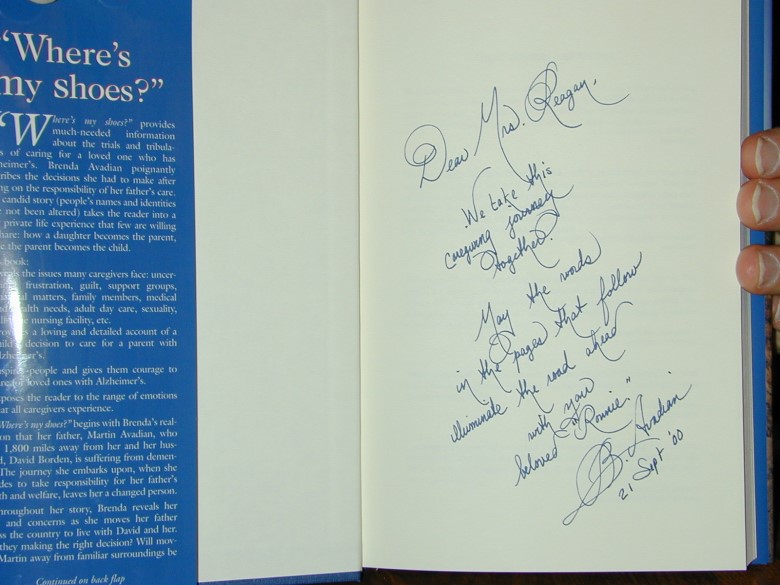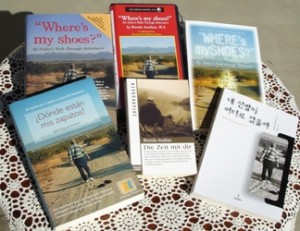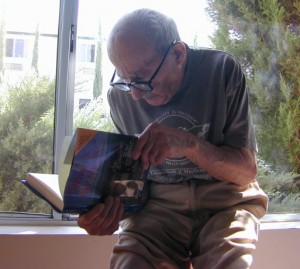Since the late 1990s, thousands of family caregivers and professionals have written books about their experiences and offered caregiving tips along the road of caregiving. Caregivers are the real heroes; oftentimes, working 24-7. The journey is fraught with many obstacles amidst the joys; yet, when we’re willing to run the marathon of caring for our loved ones, we learn a lot about ourselves and become better people.
So, how do you help others learn from and be inspired by your caregiving experiences? And how do you interest a publisher in your message?
These questions and the four steps to being a published author will be answered in this and the next two articles in this three-part series.
First of all, know that you can rarely anticipate which of your words and stories will capture the hearts of caregivers and give them strength to go on. There have been many times, people have told me something I wrote or said helped them overcome an obstacle or face a challenge and yet, I didn’t recall writing or saying it.

Where do we begin?
There are many paths. Two include journaling to cope and make sense of our caregiving and/or sharing our deeply felt joys and struggles to ease other caregivers’ journeys. Some of us may even step up to write a book because others told us we should, as I did with measured caution.
Fulfill a need.
During the late nineties, while caring for and coping with caring for my father with my then-husband in our California home, support group members encouraged me to write about our experiences. They enjoyed my humor in dealing with the frustrating times.
I was initially cautious having written four books earlier. It’s difficult to sell one’s work, especially in a niche area people wanted to avoid. If I were to spend months writing a personal story about my father’s Alzheimer’s and caregiving, they needed to show me the money. This was long before online-funding campaigns. Their funds motivated me to start writing.
A year later, after bigger publishers showed no interest in a caregiver’s story about a parent with Alzheimer’s, I published my own work. There were only a handful of caregiving books written by family caregivers. Publishers were unwilling to take a chance on this topic. I released it as a hardcover edition. Soon, we celebrated the unabridged audio edition and the international sales due to German, Spanish, and Korean editions. It also came out in an unabridged audio edition.
Truth is, up through and into the new millennium, family caregivers hesitated to talk publicly about Alzheimer’s disease, dementia, and the challenges of caregiving.
Invest in your own successful outcome.
When others can’t picture your vision, it’s likely due to a combination of their lack of experience in the area and your inability to paint a more compelling picture or that you need a larger following. To be successful you’ll need to balance how much you will spend of two resources—time and money.
Time is money. Money is time.
I was willing to learn and do things for myself (spending time). I hired experts to ensure success in the areas that I couldn’t do myself (spending money).
Beyond the early investment from advance sales proceeds, I invested over $50,000 of my own time and money. I wanted to ensure success. (Don’t underestimate the size of a publisher. Even a micropublisher can have a bestseller—we’ve had two since our founding in 1992.)
Nearly $25,000 went into outsourcing the editing, design, production, and shipping of several thousand hardcover copies.
Thousands of dollars went to attending trade shows and promotions.
Hundreds went to joining organizations in my areas of interest.
With today’s resources for publishing and promotion, changes in the publishing model during my nearly 30 years’ experience in publishing, my investment would be far less.
Still, as a recognized family caregiver ahead of what would soon be a trend in this niche area, my investment in time and money and visibility led to meeting planners and conference coordinators hiring me to share my message in keynote addresses across America.
While my father was alive, I wrote and told stories in real-time. The first edition of “Where’s my shoes?” filled a unique and compelling need.
“Where’s my shoes?” is the grammatically incorrect question my father with Alzheimer’s asked when he couldn’t find his shoes while living in our California home.
Sell your content internationally.
Your words will touch the world.
I networked heavily at tradeshows and conferences without the convenience of LinkedIn, Facebook, and Twitter.
 I sought a mentor to learn about selling translation rights and invested time and money shipping books beyond U.S. borders. In the pre-eBook era this meant hundreds of dollars in shipping costs, hours completing customs forms—the drudgery of publishing.
I sought a mentor to learn about selling translation rights and invested time and money shipping books beyond U.S. borders. In the pre-eBook era this meant hundreds of dollars in shipping costs, hours completing customs forms—the drudgery of publishing.
Get your work noticed.
With today’s conveniences of social media and ease of digital file sharing, it’s easier if you’re consistent in doing the work required to share your message with the masses.
In the second of this three-part series you’ll learn two of four steps to becoming a published author:
- Research what’s out there—books, articles, videos, podcasts.
- Write a succinct and compelling overview—100 words.










Pingback: Write Your Caregiving Book—Research and Write Overview